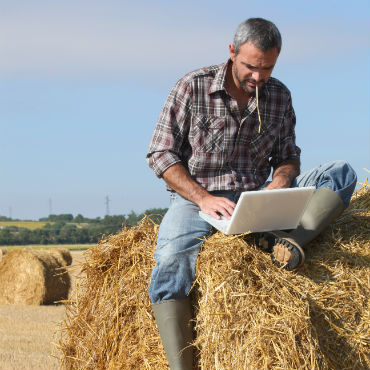Should Congress protect agricultural data?

Health and finanical information are subject to special treatment under the law -– and some experts are wondering if agricultural data should get similar protection.

Sensors, smart equipment and other new technologies are revolutionizing the way agricultural data is collected and analyzed, which can make operations more efficient, improve forecasting and allow for more sustainable practices.
However, the rise in data collection and sharing is now raising questions about the control of farm-related data and the agreements between farmers and big ag companies. Some experts say Congress needs to play a role.
"While agricultural technology making use of data grows at an exponential rate, technology and policies for protecting data has not," said Shannon L. Ferrell, associate professor of agricultural economics at Oklahoma State University, at a Nov. 14 hearing of the Subcommittee on Consumer Protection, Product Safety, Insurance and Data Security of the Senate Commerce Committee.
The Health Insurance Portability and Accountability Act created standards for electronic healthcare and mandated companies strengthen health data and privacy protections, Ferrell said. But there are no similar protections for agricultural data.
The concern is that farmers could lose control of their data or access to their data, because of agreements with technology providers.
"Every farmer has a right to access and use their data, regardless of where it came from or what system contains it. We should encourage the flow of information that could help farmers -- and their trusted advisors -- to make better-informed decisions about their businesses and food production," said Farmobile CEO Jason G. Tatge. "Farmers need policies that safeguard their data rights, and allow interoperability and accessibility to drive efficiencies and innovation in food production."
Todd Janzen, an attorney specializing in agricultural law, told the committee that farmers are also concerned that they might not benefit from downstream uses of their data in applications and tools produced by tech companies. Farmers are also leery of technolgy firms leveraging data "to gain an unfair advantage in the marketplace," he said. Janzen's firm offers a seal of approval to agricultural technology providers that meet 10 data transparency benchmarks.
Subcommittee Ranking Member Sen. Richard Blumenthal (D-Conn.) said he worried that advances in data have raised questions about who owns data, suggesting that current standards for privacy protestions may not meet the demands of this special case.
While any legislative remedy is a long way off, Ferrell suggested that preliminary efforts could focus on a clear definition of agricultural data.
"It's not health data under HIPAA, it's not financial data under the Fair Credit Reporting Act. It's something unique unto itself that may deserve efforts to actually define what those protections should be," Shannon said.


